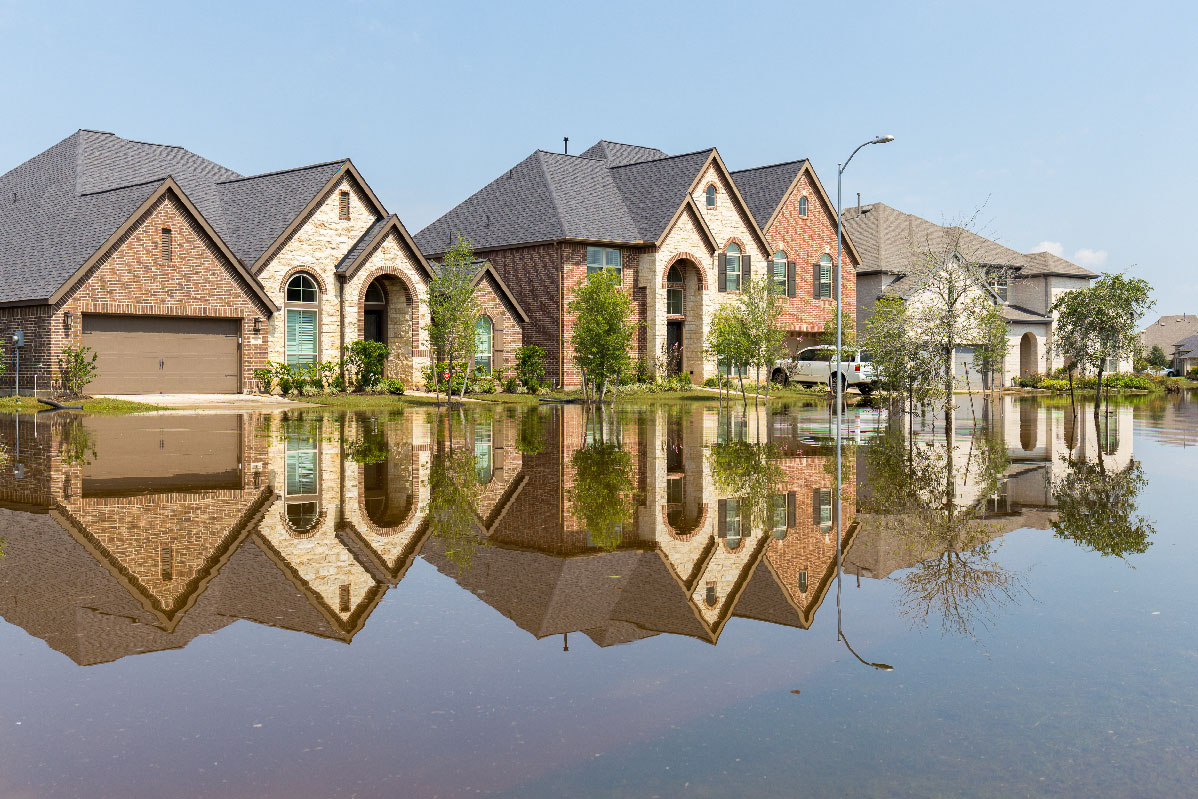Developer Does Not Owe Duty to Prevent Flooding from Hurricane

Does a land developer owe a duty to set minimum slab elevations to prevent flooding during a foreseeable weather event? In Jason Alexander, et al. v. The Woodlands Land Developer Company L.P., The Howard Hughes Corporation, LJA Engineering, Inc. F/K/A LJA Engineering & Surveying, Inc., and James R. Bowles, the Houston Court of Appeals (First District) answered this question, no.
In August of 2017, the Gulf Coast of Texas was decimated by the Category 4 storm, Hurricane Harvey, marking one of the most devastating natural disasters in U.S. history. The Houston area was one of the several cities severely impacted of Harvey’s catastrophic floods. Although the storm’s severity was unprecedented, Harris County was no stranger to historic flood levels.
Homeowners brought several negligence claims against those responsible for construction of their residential subdivision, Timarron, located on land which was flooded in October 1994 and once again almost 23 years later during Hurricane Harvey. The homeowners argued that the Woodlands Land Developer company, as well as its parent company, The Howard Hughes Corporation, “knew or should have known to have the houses built at an elevation adequate to prevent the likelihood of flooding” based on the “previous flooding in the area,” referring to the 1994 storm. They alleged that the developer owed a duty of reasonable care to construct Timarron with minimum slab elevations that could withstand foreseeable weather events.
In determining whether an unrecognized legal duty exists in a negligence analysis, courts look to what is known as the “Phillips factors,” where the courts,
1. Weigh the risk involved,
2. The foreseeability of the risk,
3. The likelihood of injury against the social utility of the actor’s conduct,
4. The magnitude of the burden of guarding against the injury; and
5. The consequences of placing the burden on the defendant.
Greater Hous. Transp. Co. v. Phillips, 801 S.W.2d 523, 525 (Tex. 1990).
The Court of Appeals was faced with the novel question of whether a developer owes an additional duty (along with the several others already established by Texas law) to guard against future, foreseeable weather events. Although foreseeability of risk is the most important Phillips factor to consider according to the Court, “foreseeability alone does not create a negligence duty.” City of Waco v. Kirwan, 298 S.W.3d 618, 624 (Tex. 2009).
In its de novo review of the negligence claims, the Court declined to recognize a new legal duty and affirmed the trial court’s opinion that the Phillips factors did not weigh in favor of recognition. Furthermore, the homeowners effectively waived this issue for appellate review because they did not raise the argument in their summary judgment response at the trial court level. In noting this error, the Court of Appeals acknowledged that even if Phillips had been properly raised by appellants on appeal, the factors did not weigh in favor of recognition and the Court’s opinion would remain unchanged.
The attorneys in our Austin and Dallas office have significant experience in litigating design and construction cases involving the development of subdivisions. Please contact us with any questions you may have at info@gstexlaw.com
Legal Disclaimers
This blog is made available by Gerstle Snelson, LLP for educational purposes and to provide general information about the law, only. Neither this document nor the information contained in it is intended to constitute legal advice on any specific matter or of a general nature. Use of the blog does not create an attorney-client relationship with Gerstle Snelson, LLP where one does not already exist with the firm. This blog should not be used as a substitute for competent legal advice from a licensed attorney.
©Gerstle Snelson, LLP 2024. All rights reserved. Any unauthorized reprint or use of this material is prohibited. No part of this blog may be reproduced or transmitted in any form or by any means, electronic or mechanical, including photocopying, recording, or by any information storage or retrieval system without the express written permission of Gerstle Snelson, LLP.

